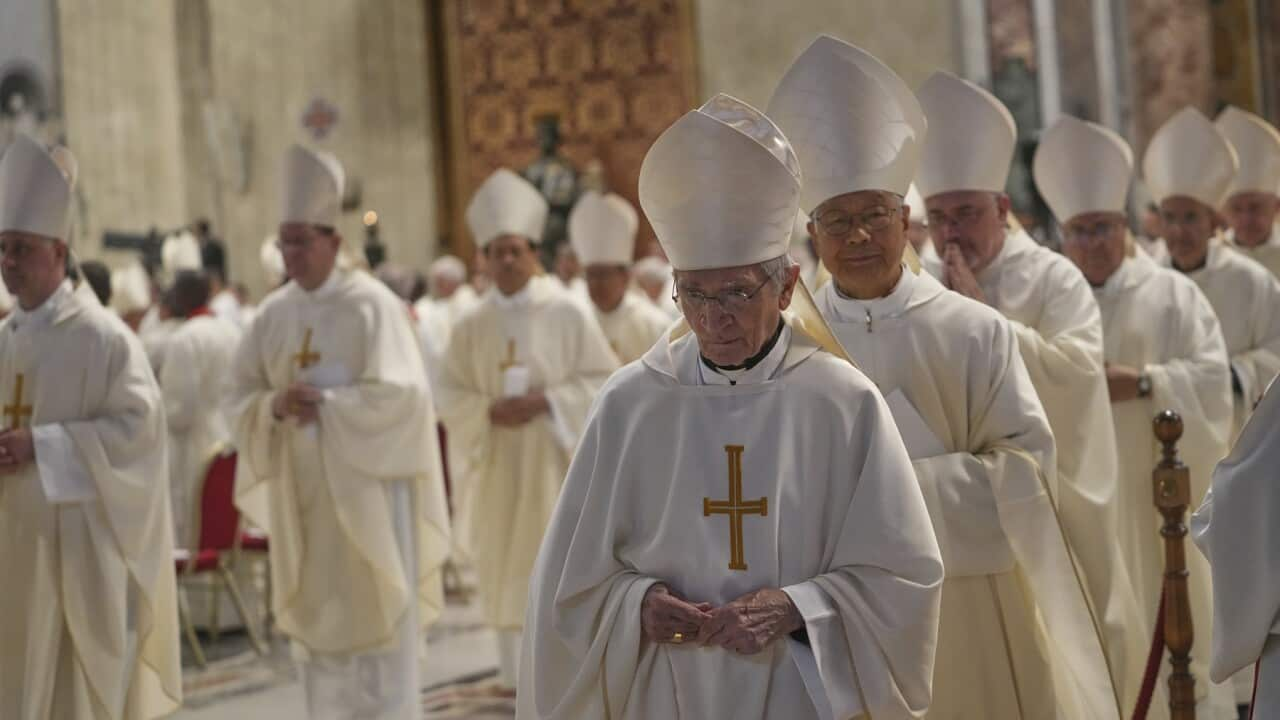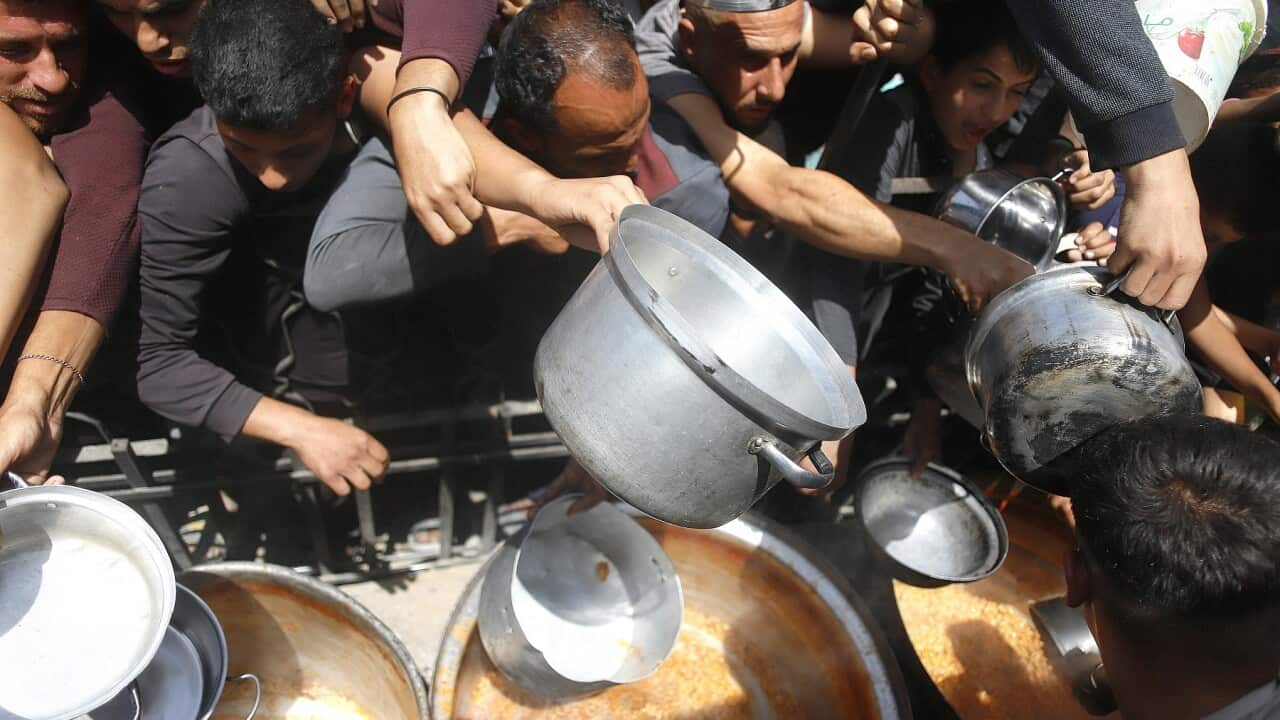TRANSCRIPT
Another night of fighting - and more calls for a ceasefire from a range of protestors around the world.
The pressure has also continued to come from official circles, like Southeast Asia's defence ministers at ASEAN, the United Nations, and countries like Turkiye.
President Recep Tayyip Erdogan has given a fiery speech to members of his party promising steps would be taken to ensure Israel's military and political leaders were brought to trial in international courts on war crimes charges.
But Israel has stood firm.
Prime Minister Benjamin Netanyahu says he won't be dictated to by a country that doesn't have clean hands.
“There are forces that support the terrorists, and one of them is President Erdogan of Turkey, who calls Israel a terrorist state but actually supports the terrorist state of Hamas; has himself bombed Turkish villages, inside Turkey itself. So we're not gonna get any lectures from them. We stand with those who stand for justice and truth.”
The Israeli Prime Minister is facing pressure from his own citizens on the question of the hostages.
Their families have gathered at a protest to call for Israel's government to do more about their release, 59 year old Merav Raviv among them.
“We don't have time to wait. Ohad (hostage) is nine years old, he just turned nine on the 23rd of October, I don't want him to be back on his BurMitzvah when he is 13. We want them (back) now.”
Israel has also faced worldwide condemnation this week for announcing an operation on the Al-Shifa hospital in Gaza, citing intelligence that Hamas was using it to hide weapons and hostages.
Both Hamas and Shifa Hospital staff have denied the Israeli allegations - and the militant group has in turn accused Israel of using the raid as a cover for a deeper purpose.
Israel Defence Force Rear Admiral Daniel Hagari says the results of the operation shows their approach is justified.
"We found inside the hospital: weapons, intelligence materials, military technology and military equipment. Additionally, an operational headquarters was located with Hamas communications means and military technology. The technologies and materials were transferred for extraction and testing by the intelligence agencies.”
The IDF has published a video showing what they say they have found in the hospital, though those claims can't be verified and Hamas has dismissed them as 'cheap propaganda'.
Palestinian authorities and aid organisations say the situation on the ground in Gaza remains grim.
The first truck carrying fuel into Gaza since the start of Israel's war with Hamas has crossed over from Egypt.
Still, the UN's Martin Griffith says the delivery will do little to alleviate the supply shortages that have hampered relief efforts.
“Fuel is the driver of so many aspects of the humanitarian response. It's the driver of desalination. It's the driver of electricity. It's the driver of effective hospitals. It's the driver of trucks that will go from Rafah on entry to the distribution points. The 24,000 litres most welcome, no question about it, is not enough to provide the fuel that we need daily to get to the whole of Gaza.”
Israel says the fuel can't be distributed to hospitals.
But surgeon Dr Ahmed Al-Mokhallalati, who is based at Al-Shifa hospital, has told Al-Jazeera they're in desperate need of resources - and more.
“It's really horrible here. It has been continuous bombing and firing. Around 700 patients. We have civilians within the hospital sheltering. There are families with kids, and we have the military staff. So imagine how [[inaudible]] everyone here within the hospital.”
A group of premature babies inside Al Shifa have been transferred to a different ward after incubators stopped working because of the lack of electricity.
Co-founder of Gaza Medic Voices Dr Omar Abdel Mannan has told Sky News their fate remains precarious.
“The incubators are their artificial womb. And because there is no running electricity to heat them, to give them oxygen, to give them food, they are being left like little mice inside these cots to frankly either die, starve or have long term running conditions.”
The pressures on the health system are not limited to Gaza.
From his office overlooking the Lebanese border with Israel, Dr Mounes Klakesh says he can hear the thump of artillery rounds and air strikes landing on nearby towns.
The increasing frequency of those strikes is putting the staff of his small hospital on edge.
It has 14 emergency beds and serves nearly 300,000 people in the area - but it struggles to operate because of a lack of staff and crucially, fuel.
Dozens more public hospitals are in a similarly precarious state, because Lebanon's economic collapse in 2019 left them barely able to cope in peacetime.
But Dr Klakesh says they are determined to keep going.
"The fear is definitely there. But this is our destiny. Our job is to be here and to keep going, depending on our capabilities and what is available to us, and hopefully the situation won't get worse.”













